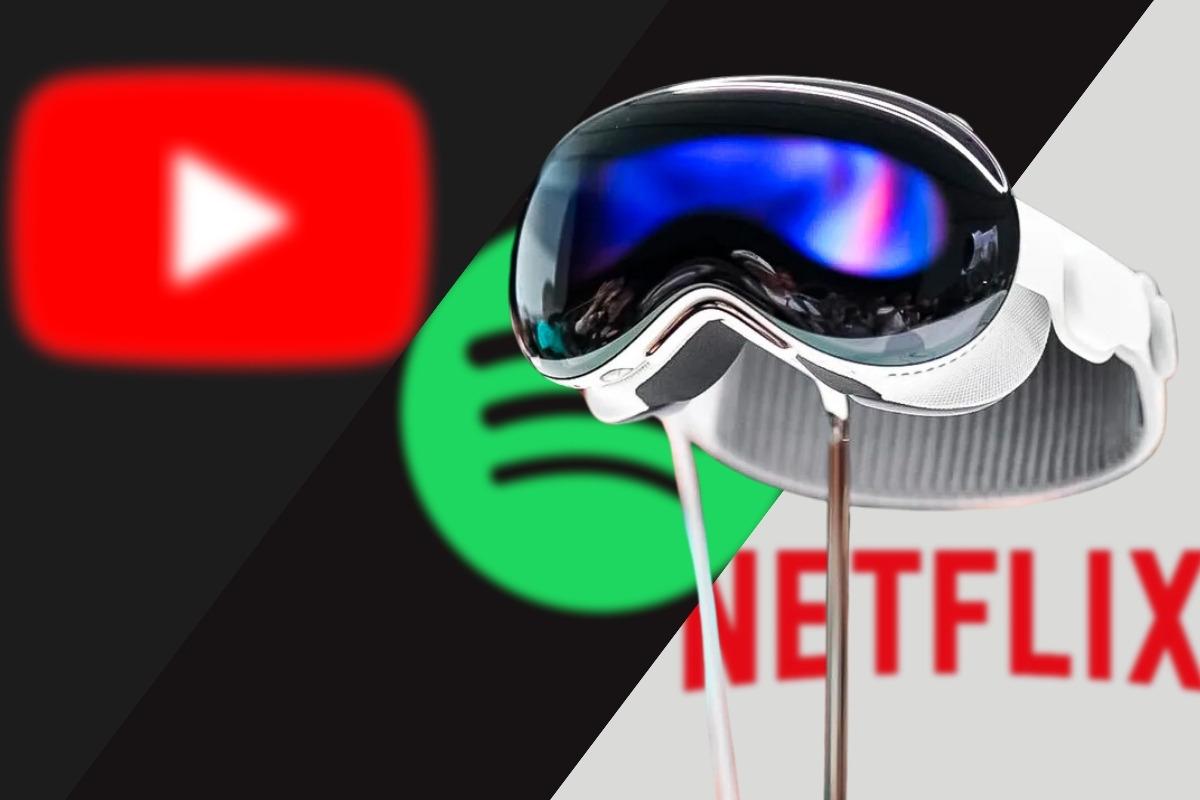These three streaming giants won’t release their visionOS-compatible apps.
YouTube and Spotify have announced that they will not be launching native applications for Apple’s highly anticipated mixed-reality headset, the Apple Vision Pro. This move aligns them with Netflix, who had previously decided against a dedicated app for the platform.
This collective step back from three major streaming platforms casts doubts about the potential appeal of Vision Pro. It also raises questions about the future relationship between streaming platforms and emerging tech devices.
YouTube and Spotify’s Strategy for Apple Vision Pro
In a recent statement, YouTube announced that it does not plan to launch a new app for the Vision Pro. It also won’t adapt its existing iPad app for compatibility with the device. Instead, YouTube recommends Vision Pro users access its content through the Safari web browser at the device’s launch.
Similarly, Spotify is not currently planning a new app for visionOS, the operating system of the Vision Pro, and does not intend to enable its iPad app for the device. However, like YouTube, Spotify’s service will likely be accessible via a web browser.
There is much speculation about the reasons for this decision. Possible factors include business strategy and technical challenges. But, the exact motivations remain under wraps. The decision by Spotify is not believed to be related to its ongoing dispute with Apple over App Store policies, though.
Other Apps’ Stance on the Vision Pro
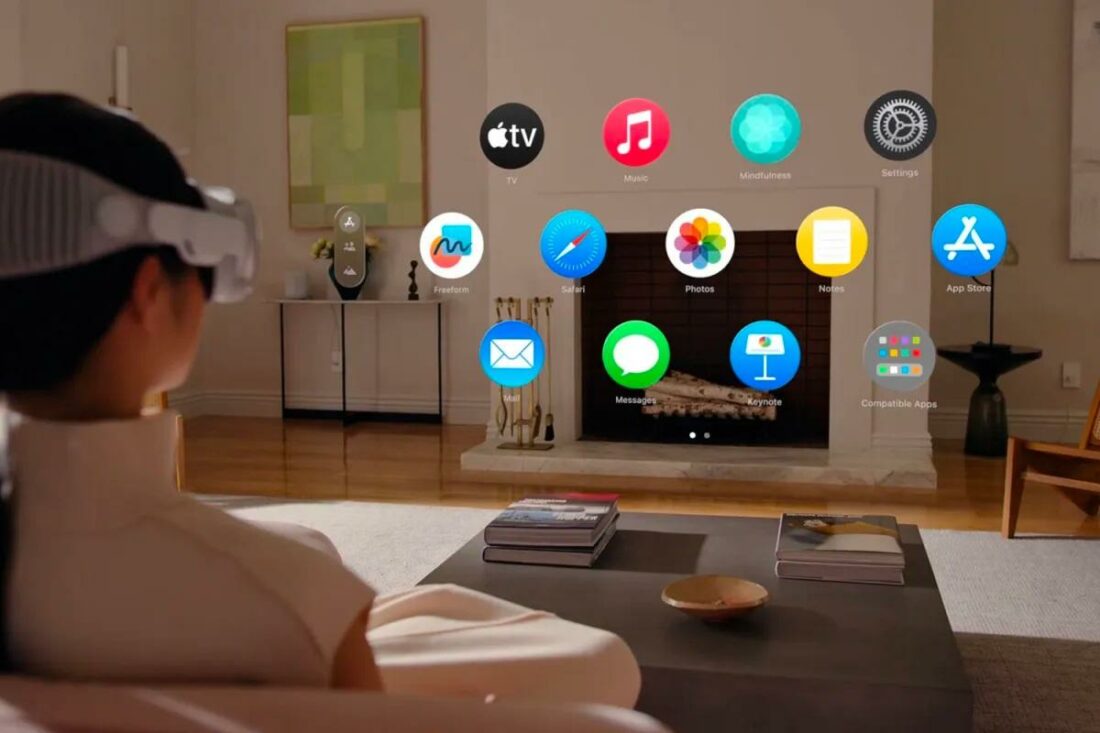
YouTube, Spotify, and Netflix’s absence from the Vision Pro’s app roster contrasts with the participation of other entertainment services. This includes Disney+, HBO Max, Peacock, ESPN, and Amazon Prime Video. These services’ commitment to the Vision Pro underscores the selective nature of YouTube and Spotify’s decision.
However, it appears that other significant apps from Meta Platforms Inc. are also not set to be compatible with the Vision Pro. This includes Facebook, Instagram, and WhatsApp.
Consumer Reactions and Speculations
With the absence of YouTube, Spotify, and Netflix, the tech community is keenly watching to see how Apple navigates this challenge.
The absence of key apps like YouTube has led to discussions about consumer expectations and alternatives.
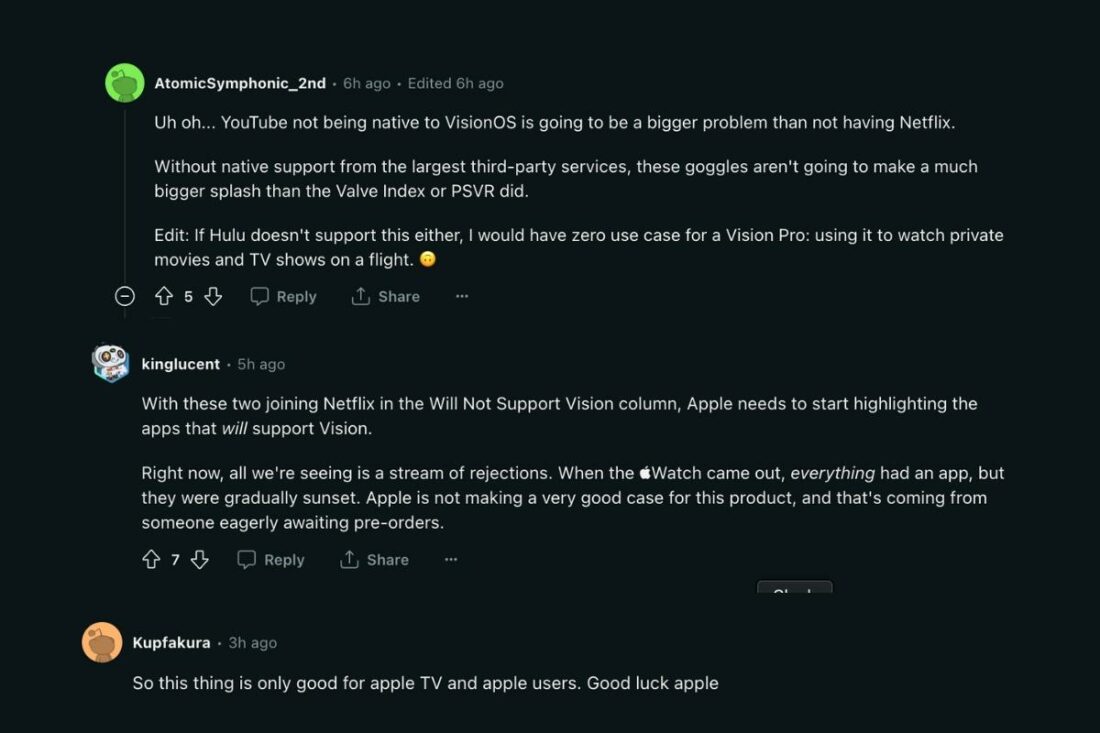
Dnlkvcs mentioned using Safari with AdGuard as a workaround for YouTube. This indicates that consumers might find ways to circumvent the lack of native app support.
AtomicSymphonic_2nd, however, expressed concern, noting that “YouTube not being native to VisionOS is going to be a bigger problem than not having Netflix”.
Kinglucent and others highlighted the need for Apple to focus on apps that will support Vision. He mentions that the current trend of rejections isn’t a good sign for the product’s success. The sentiment reflects a broader concern about the potential market impact of these decisions by major players like YouTube and Spotify.
Other reactions have been focused on speculations on why this happened. Some of the most notable are:
- Spotify’s historical context against Apple
- The Developer-Apple dynamic
- Financial and strategic considerations
Spotify’s historical context against Apple
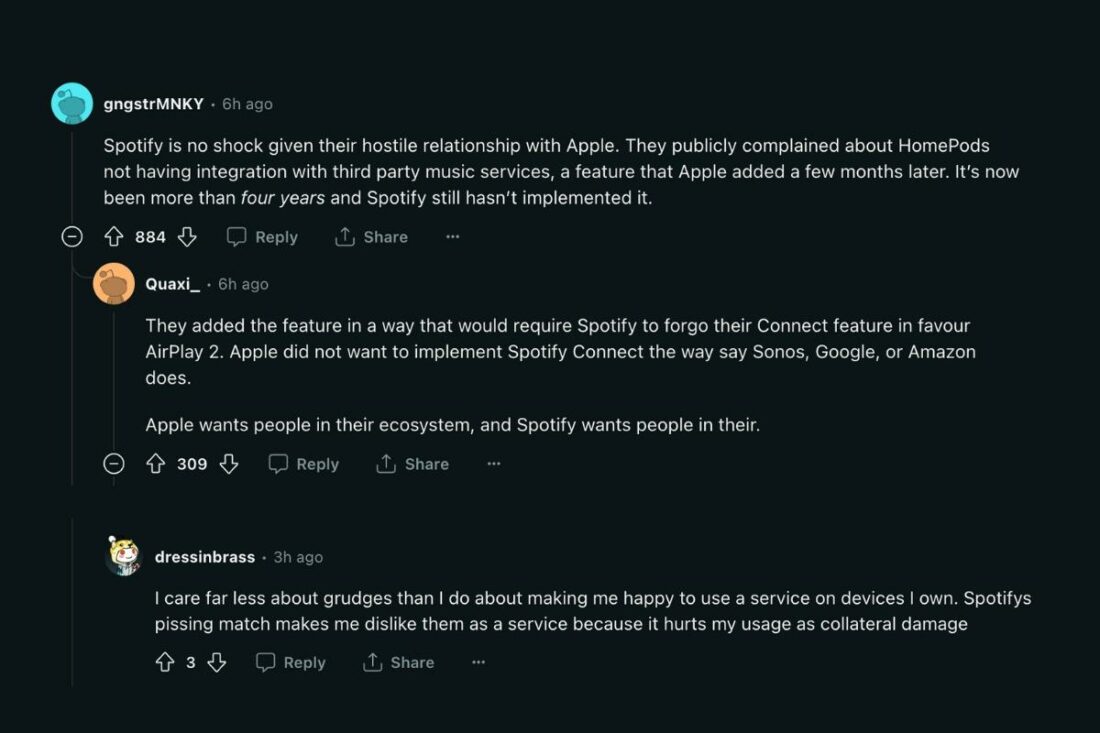
The decision by Spotify did not come as a surprise to many, considering their historically strained relationship with Apple.
This longstanding discord seems to stem from a difference in ecosystem priorities.
Furthermore, Aeriose observed that Spotify’s development teams “do not prioritize Apple products at all”. They suggest that it can be a strategic decision rather than a mere oversight.
The Developer-Apple dynamic
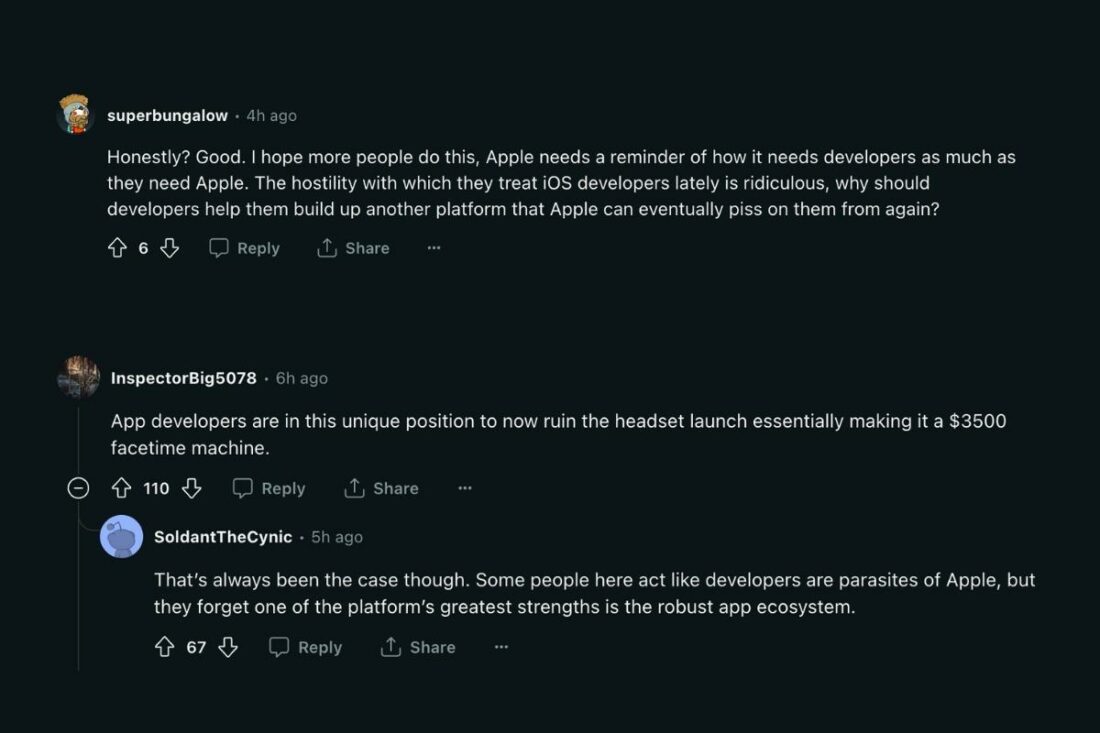
The relationship between app developers and Apple has been another focal point.
This sentiment was echoed by InspectorBig5078. They suggested that app developers are in a unique position to influence the success of Vision Pro. This can potentially reduce the headset to be a “facetime machine”.
Financial and strategic considerations
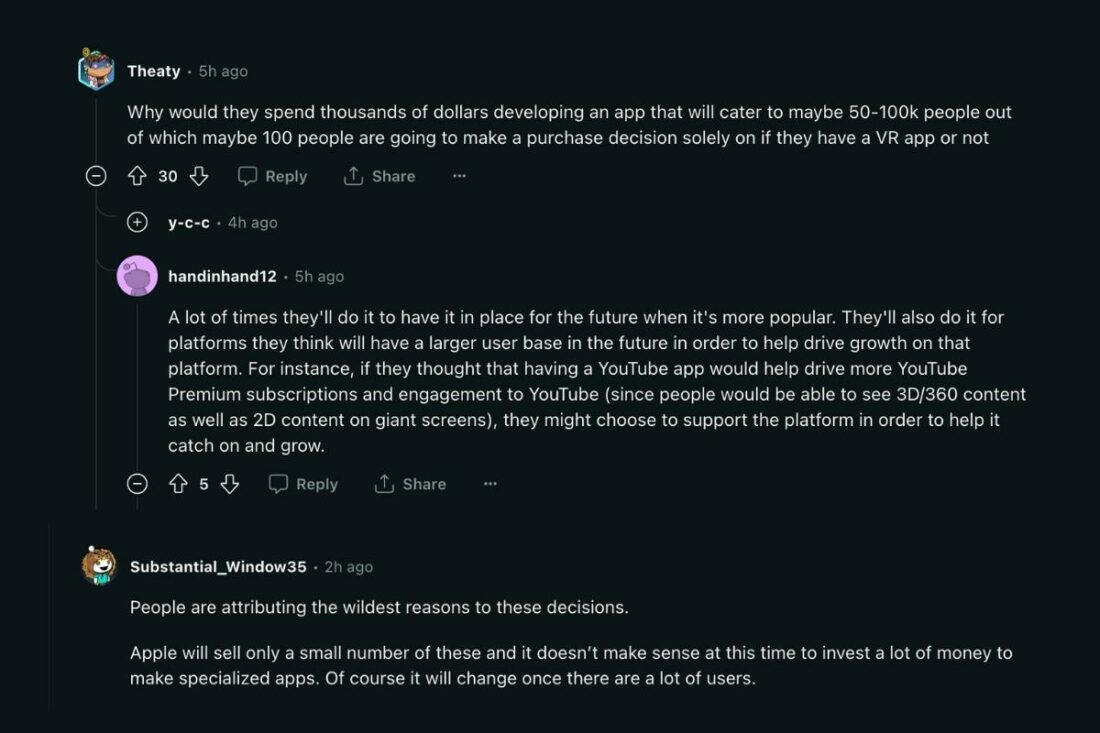
There were also practical considerations regarding the development of apps for a new platform like Vision Pro. Theaty questioned the financial viability, asking why developers would spend thousands on an app for a limited user base.
Handinhand12 countered this by suggesting that supporting the platform could be beneficial for future growth and engagement.
